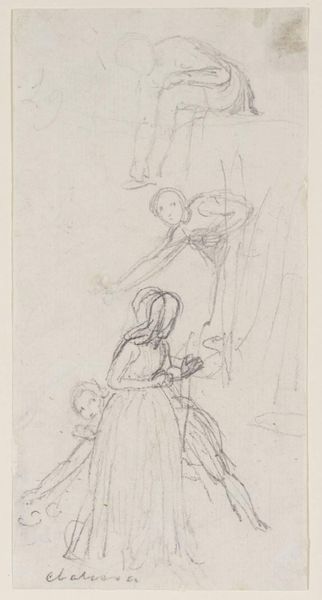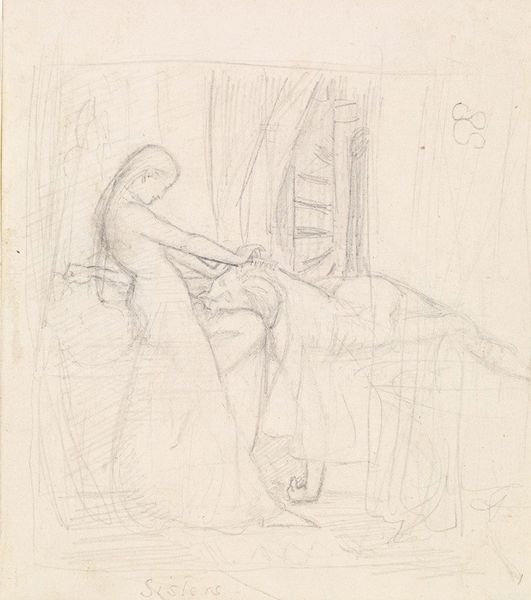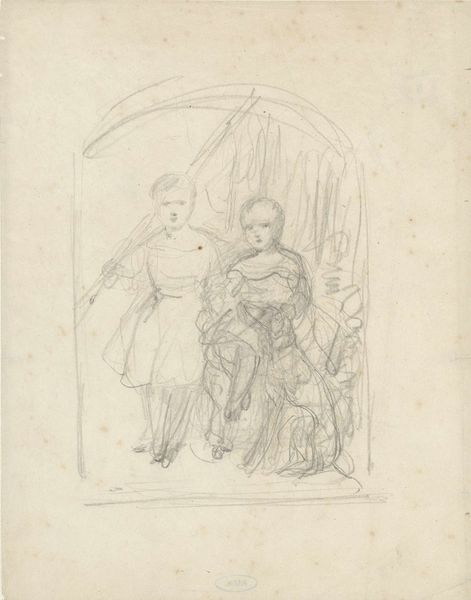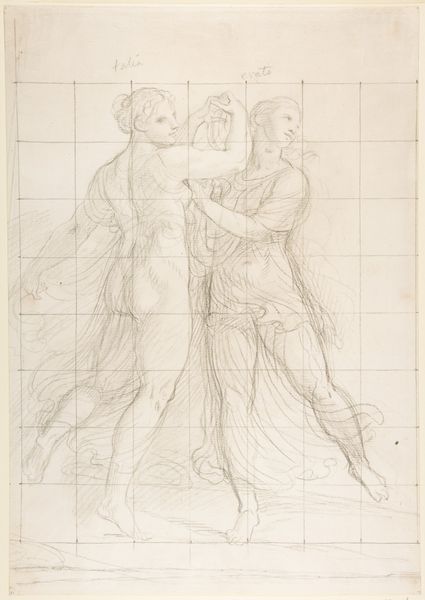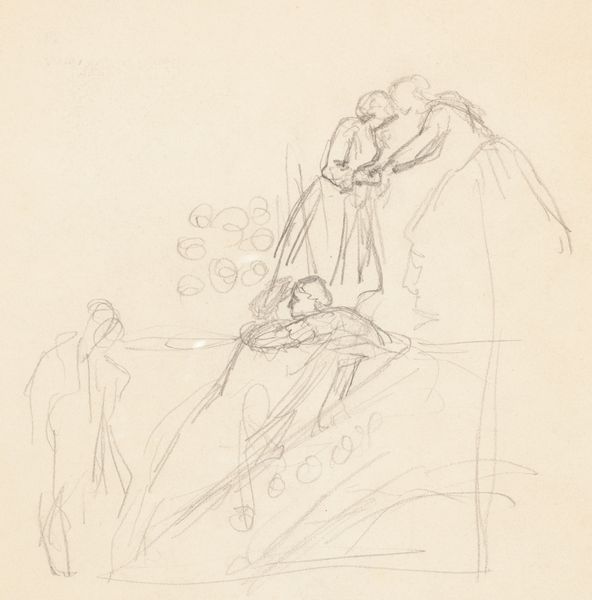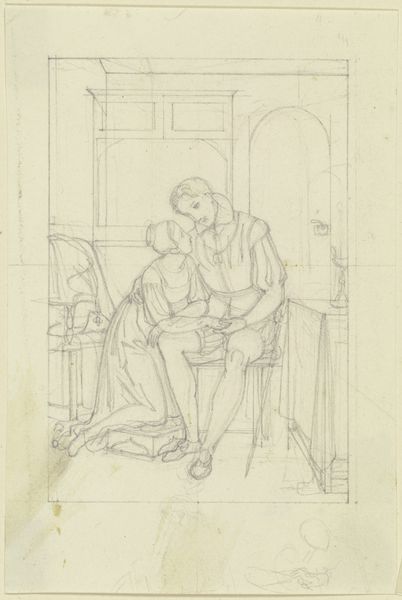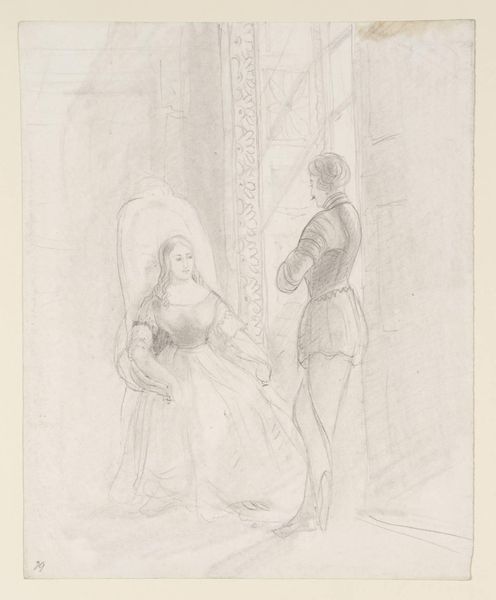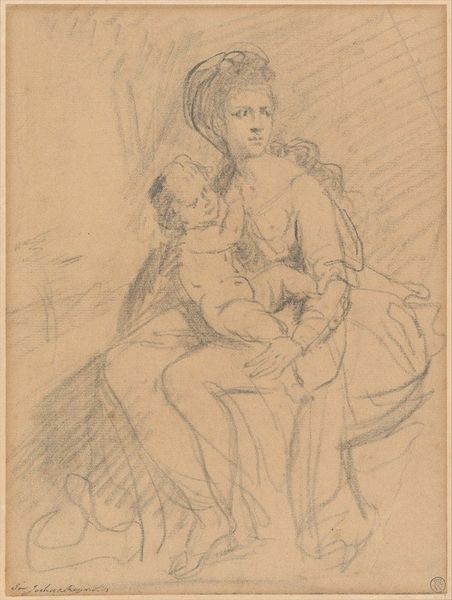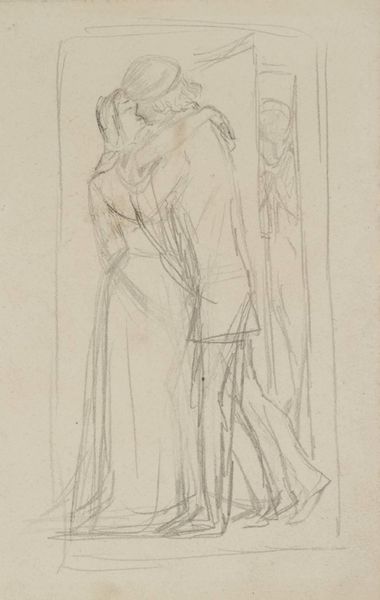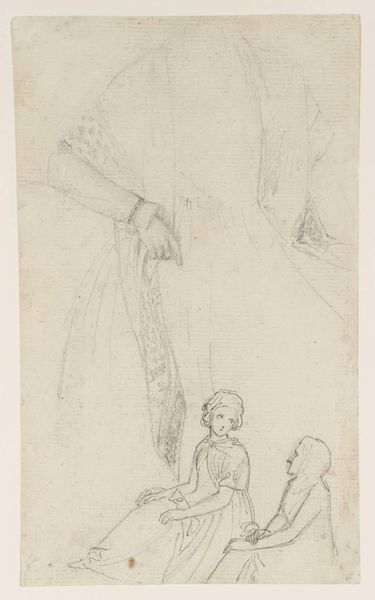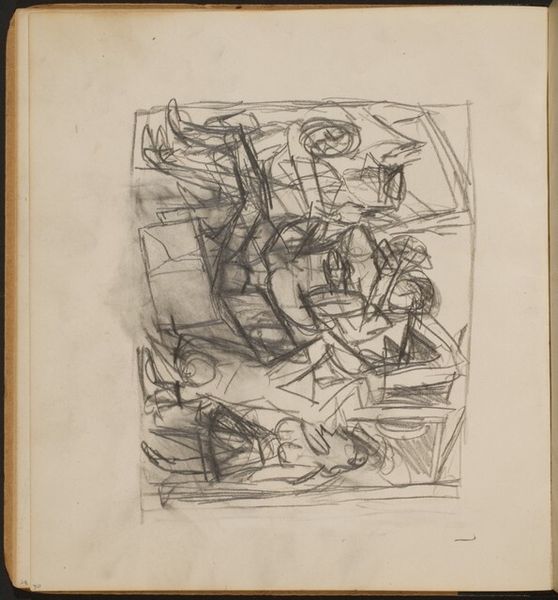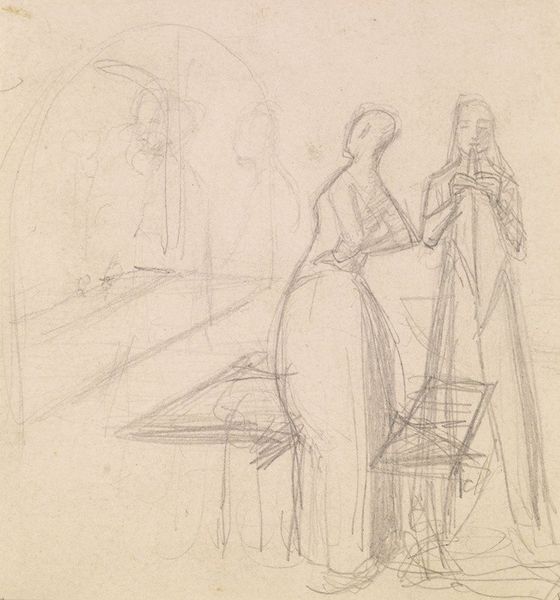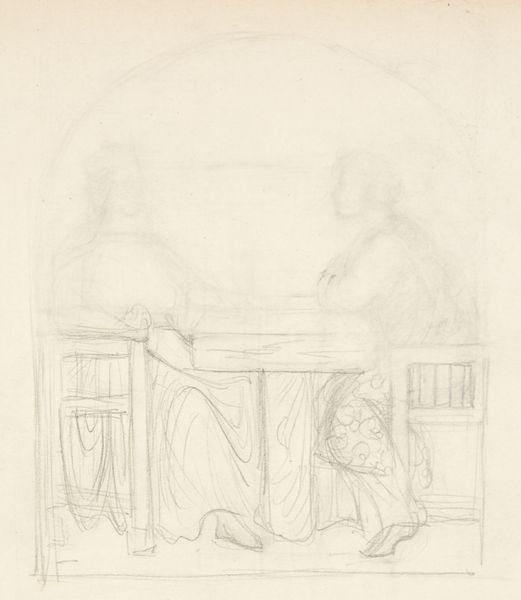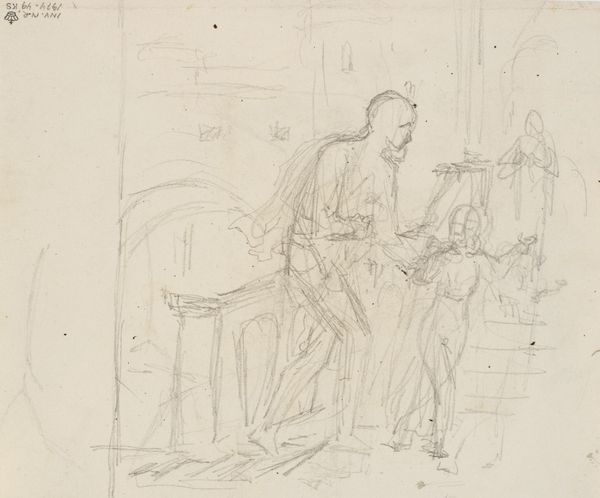
Tennyson’s The Miller’s Daughter – Study for Husband and Wife in Arise and Let us Wander Forth 1855 - 1856
0:00
0:00
Copyright: Public Domain: Artvee
This is a preparatory sketch by Sir John Everett Millais, exploring a tender moment between a husband and wife. The figures are oriented towards a window: she is seated, pensive, chin in hand; he leans forward, one leg resting on the window seat. Consider the gesture, the way the husband's gaze directs our own. This leaning posture is a motif echoing through art history. In ancient Roman depictions of contemplative gods, or Renaissance portrayals of philosophers absorbed in thought, we see this same posture. Yet, here, it is imbued with a distinctly modern sensibility. The motif of the window acts as a potent symbol, a liminal space between the interior and exterior worlds. It has surfaced repeatedly, from medieval devotional images showing glimpses of paradise to Romantic landscapes depicting a yearning for the sublime. The window motif is a recurring emblem of human longing, a powerful force engaging viewers on a deep, subconscious level. It reminds us of our eternal quest to understand our place in the world.
Comments
No comments
Be the first to comment and join the conversation on the ultimate creative platform.
